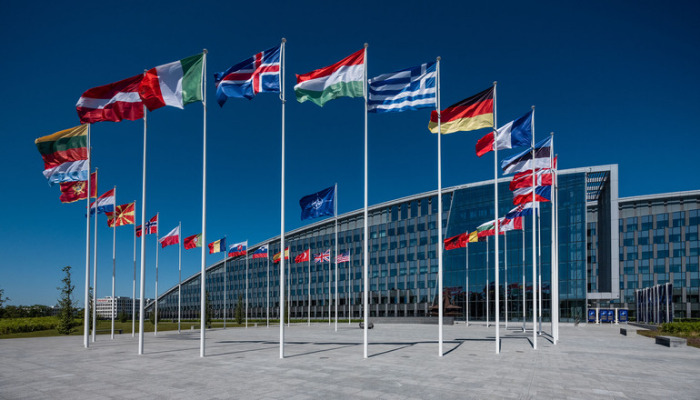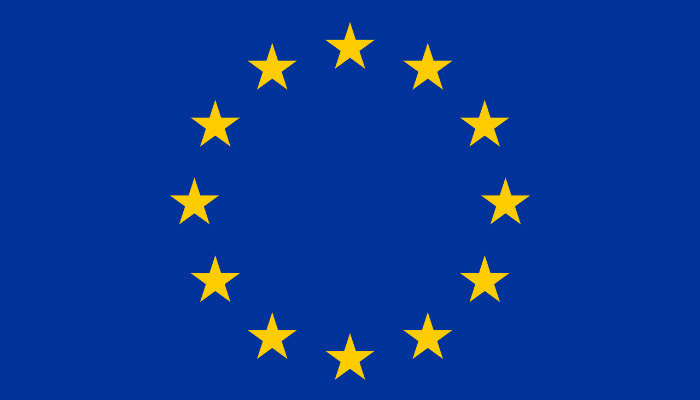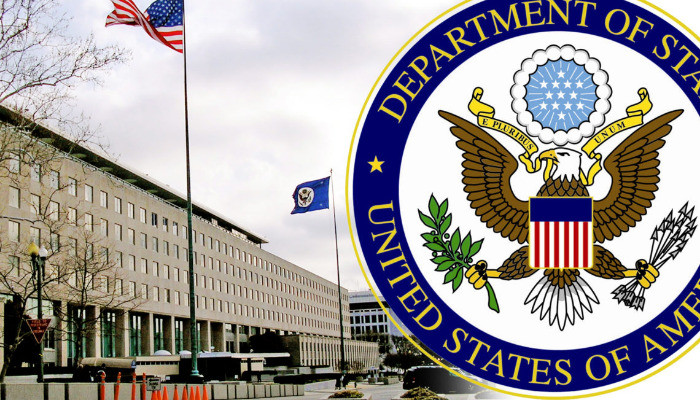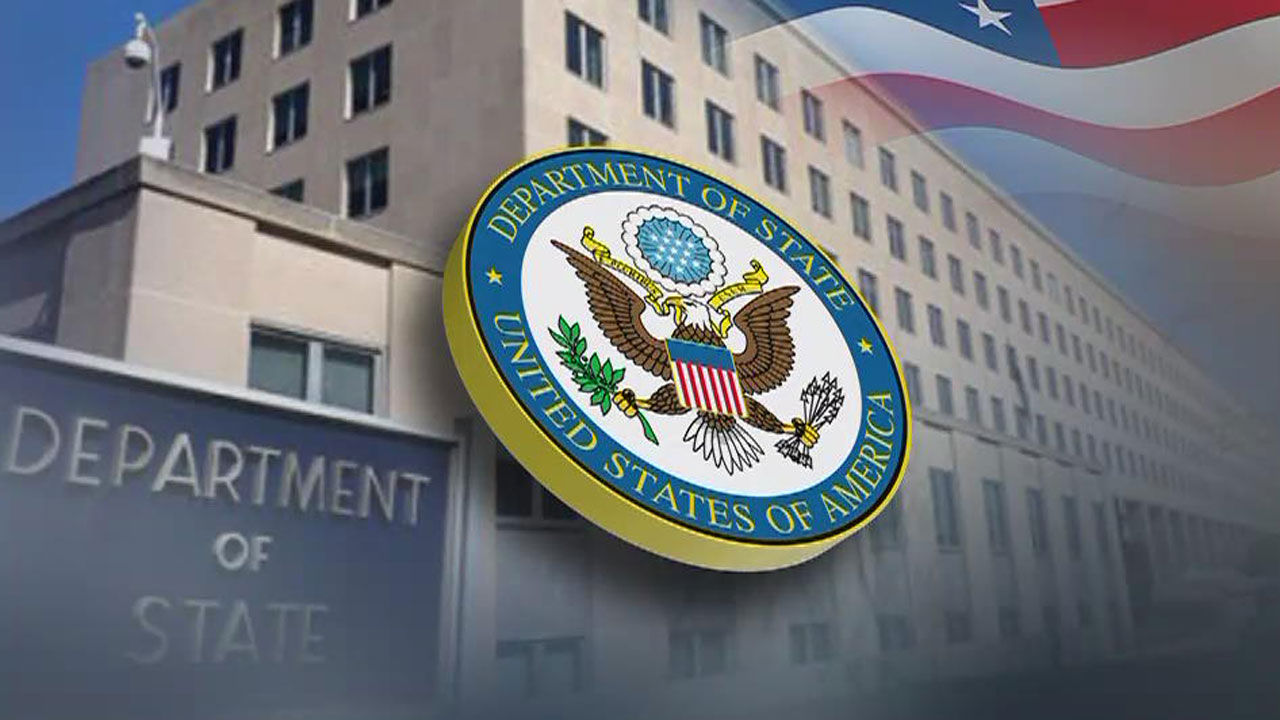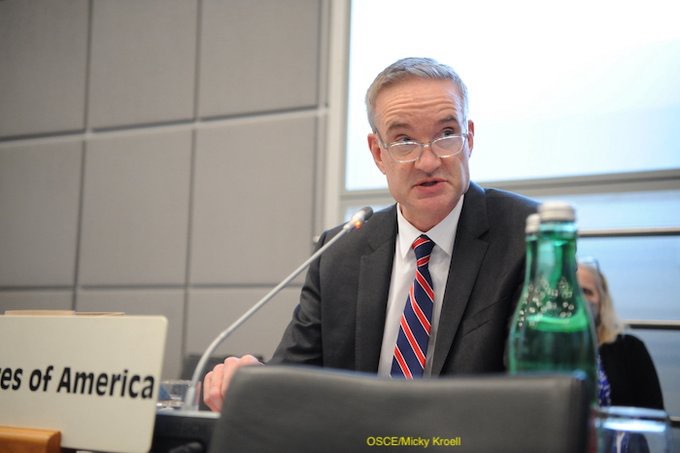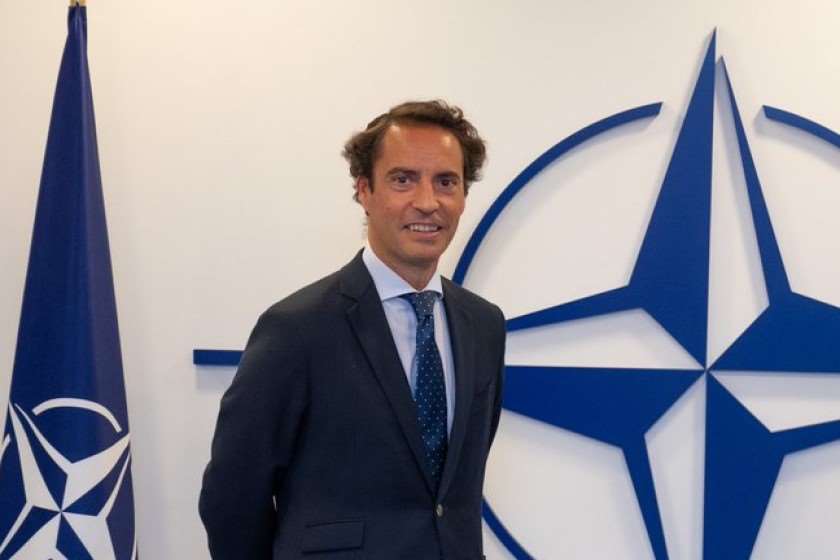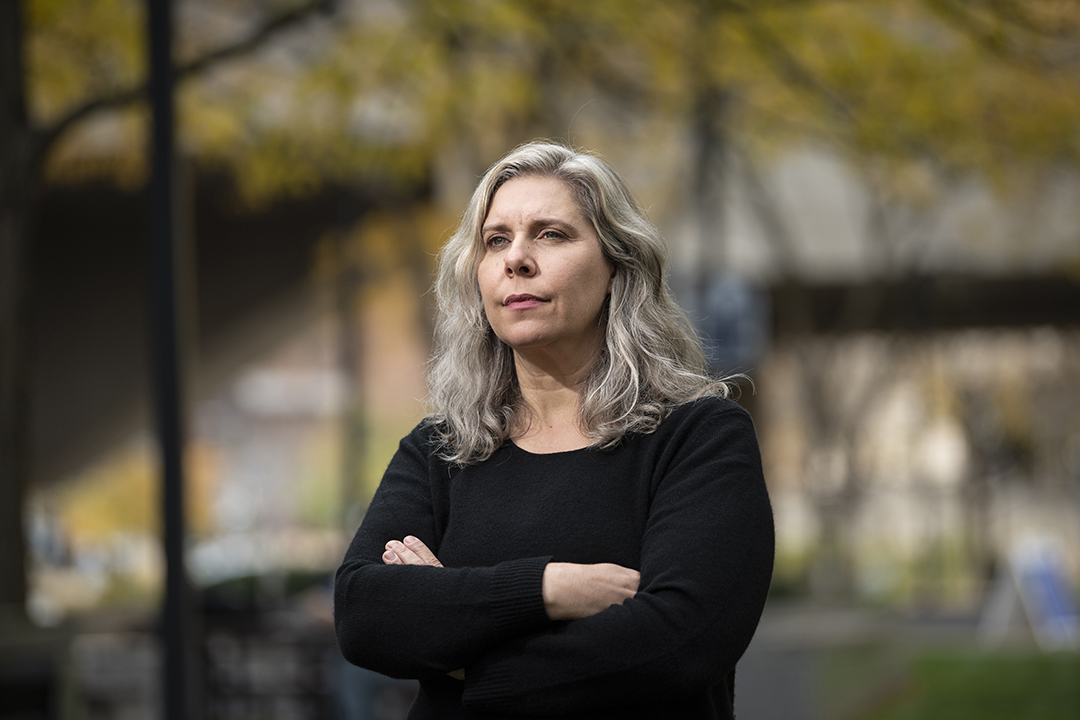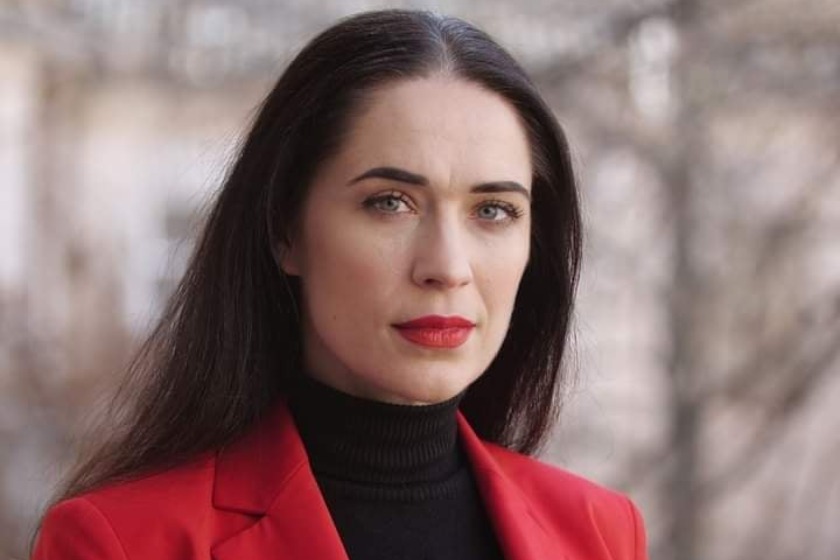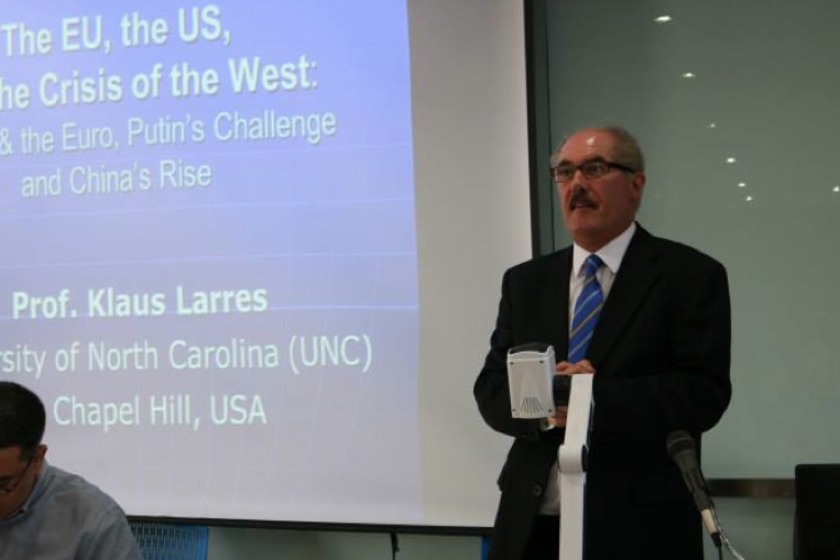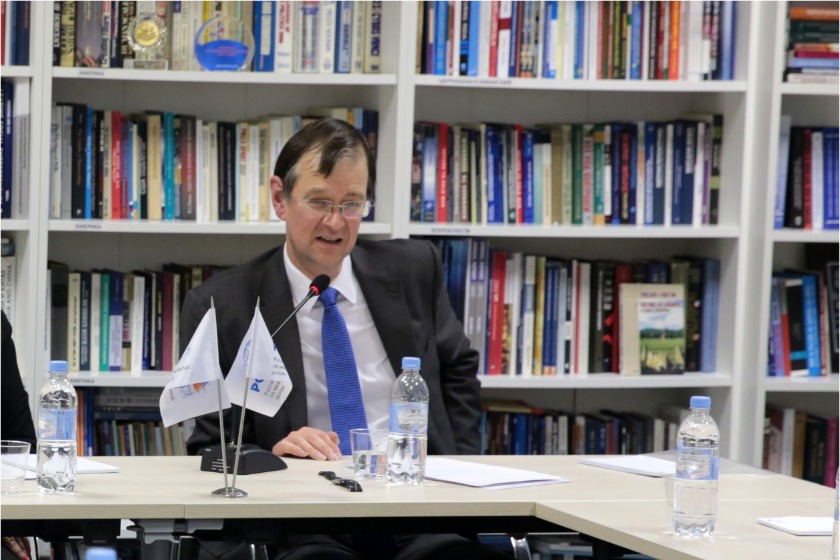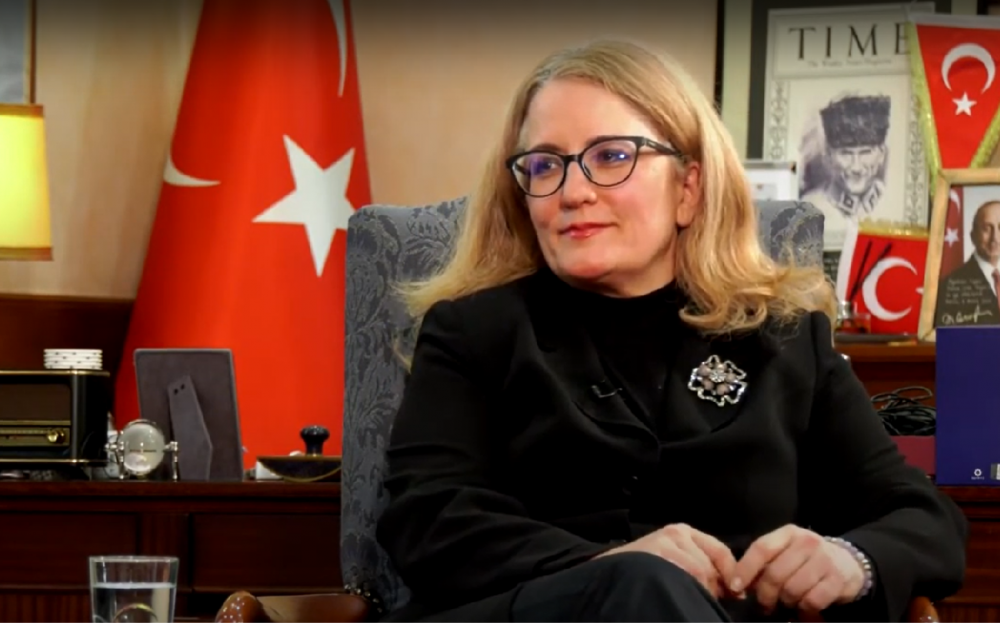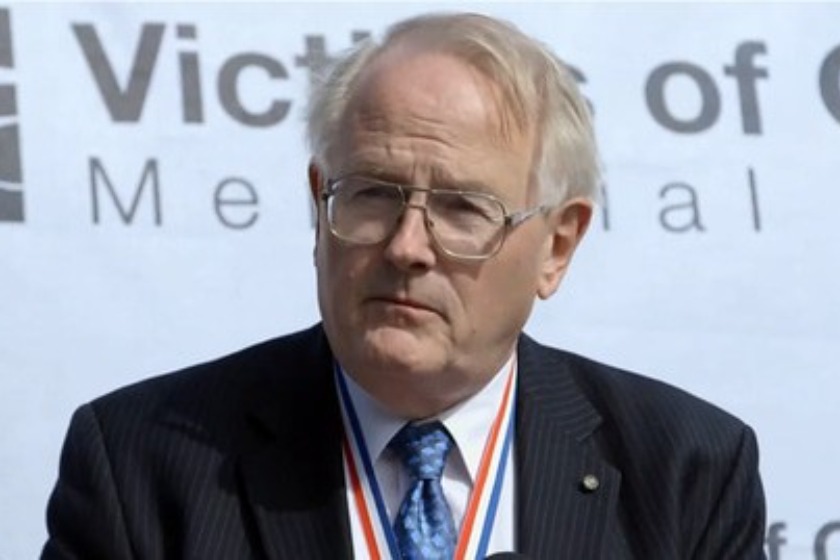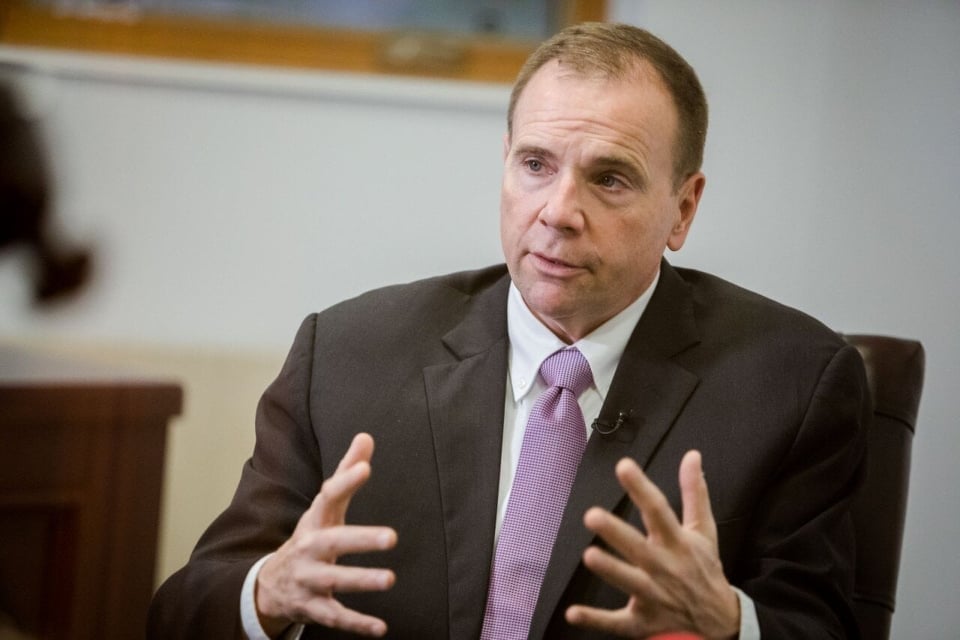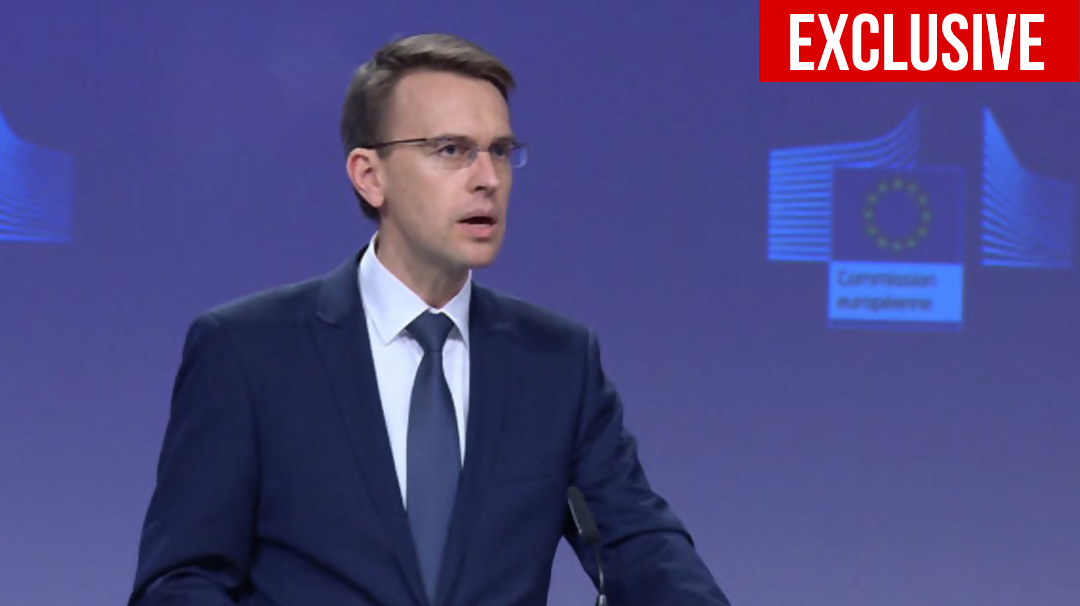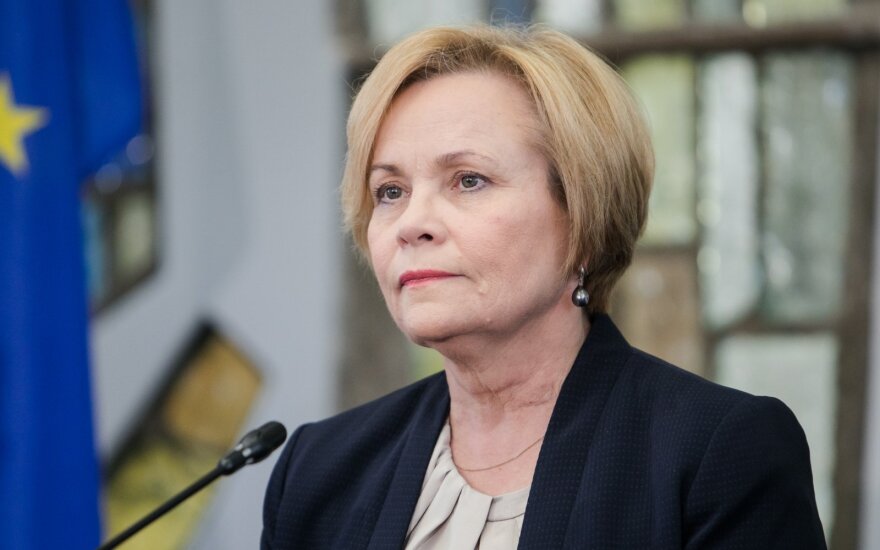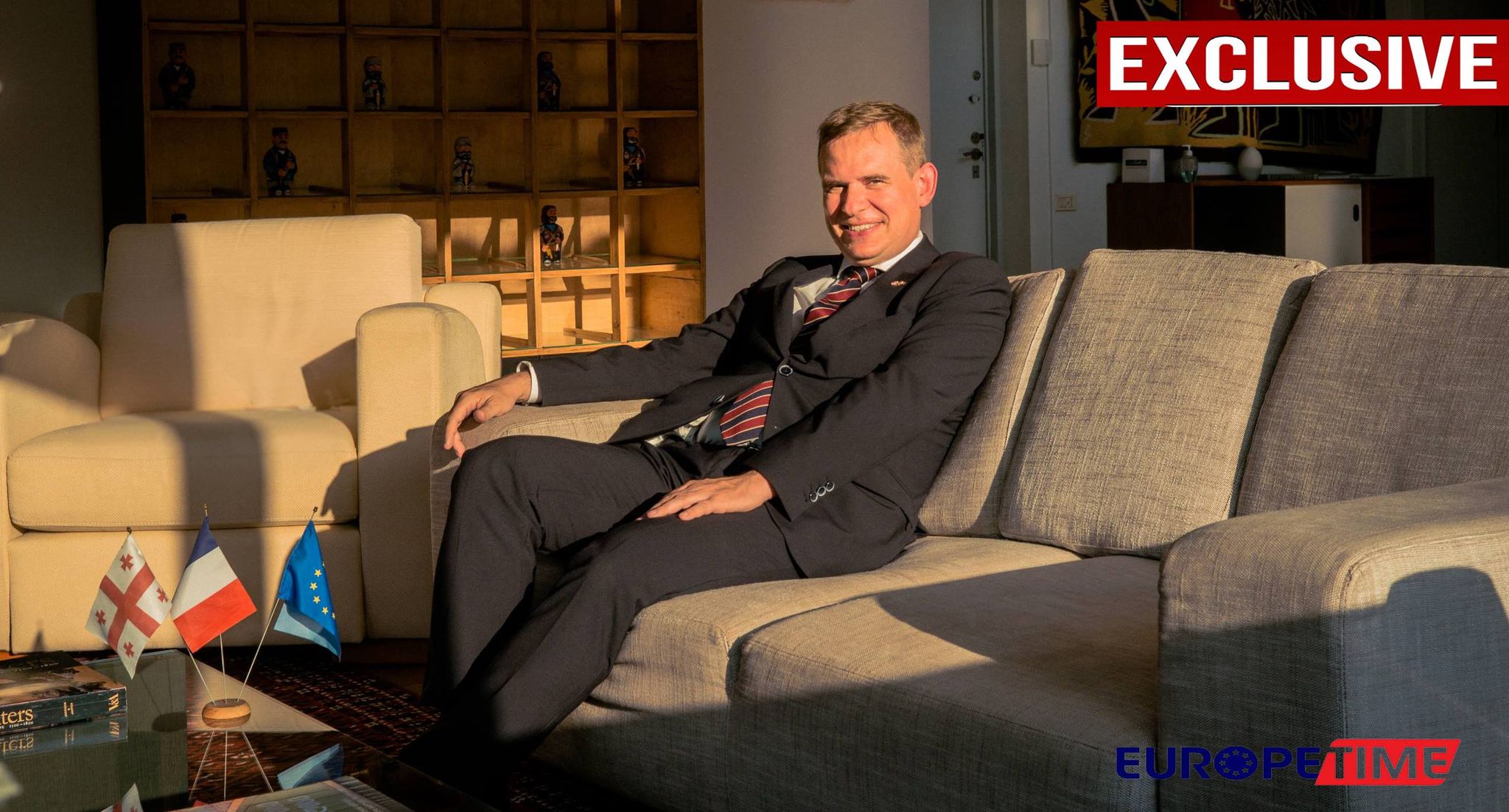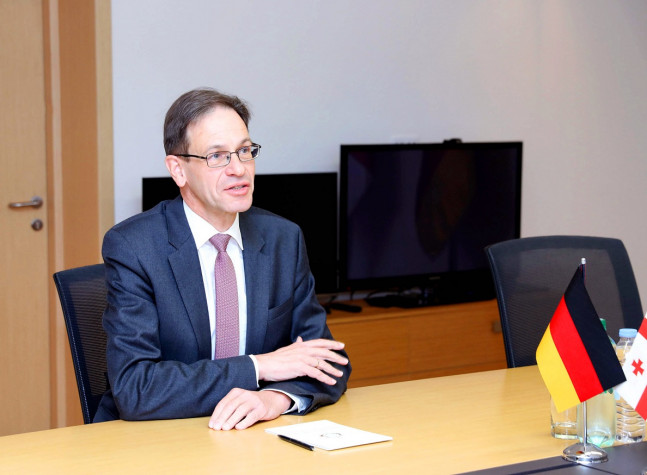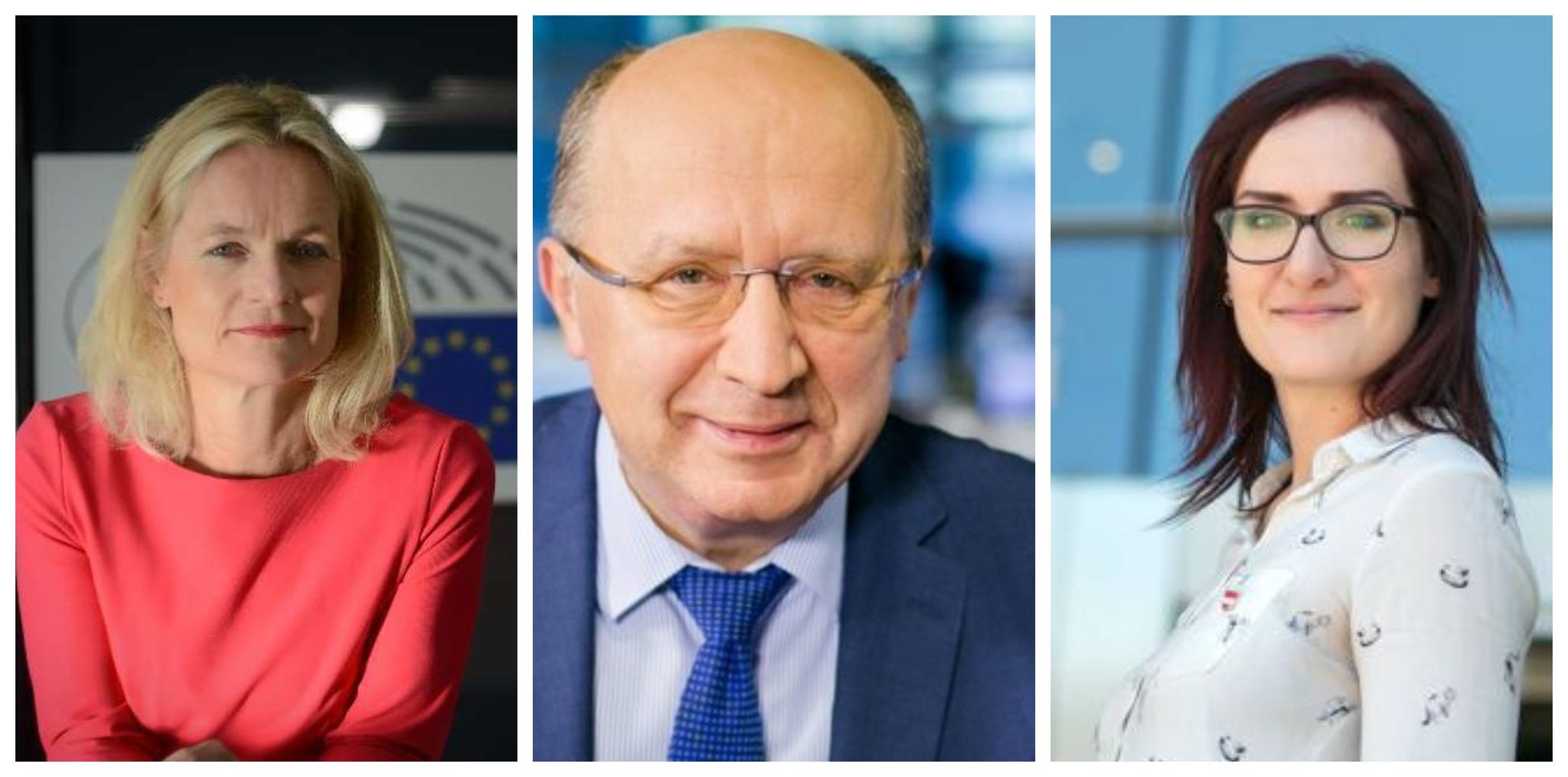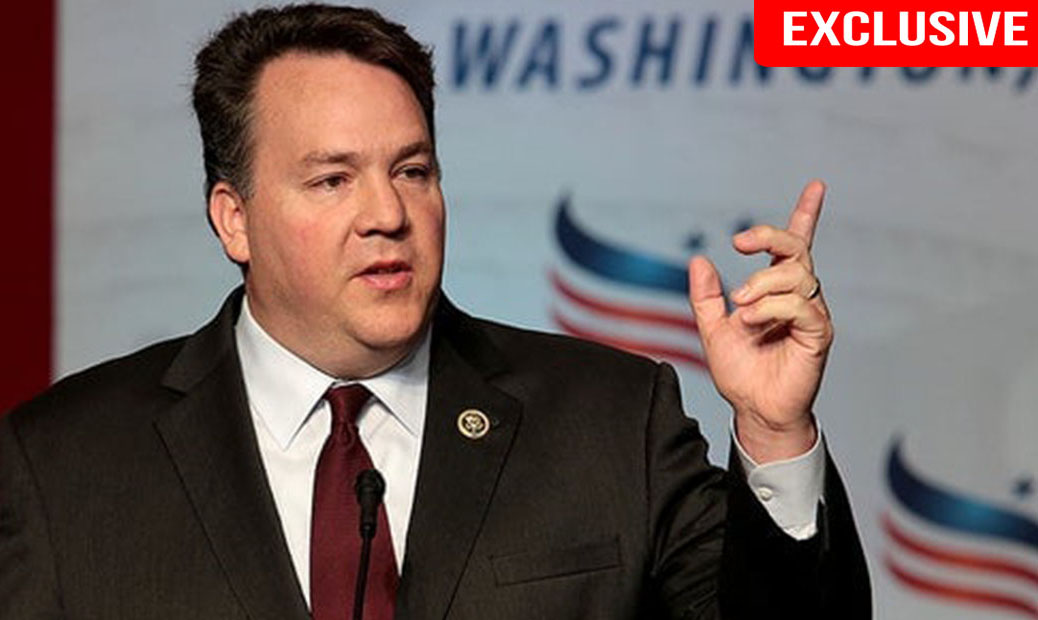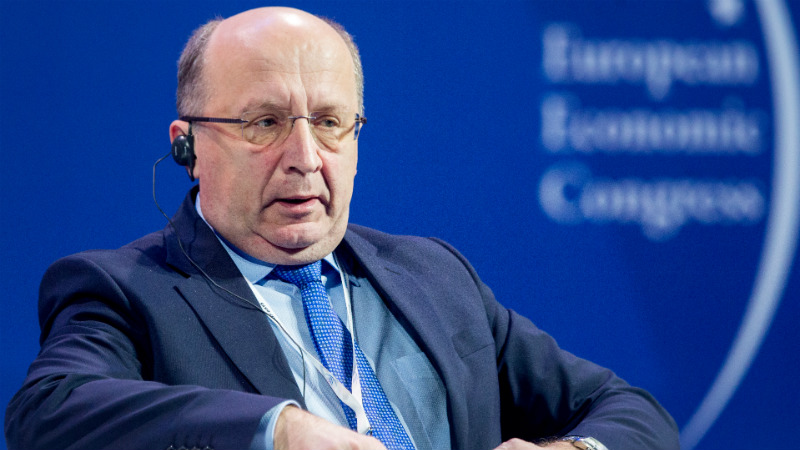Analytics
An official says NATO highly values Georgia’s long-standing contributions to Euro-Atlantic security
A NATO official told Europetime that Mr. Appathurai's recent visit to Georgia was part of regular consultations held by NATO officials with their Georgian counterparts. In addition, it reaffirms that the NATO-Georgian political and practical partnership rests on a very solid track and that NATO highly values Georgia’s long-standing contributions to euro-atlantic security. `Mr. Appathurai’s recent visit to Georgia is part of regular consultations held by NATO officials with their Georgian counterparts. It provided an important platform to reaffirm that the NATO-Georgian political and practical partnership rests on a very solid track and the NATO highly values Georgia’s long-standing contributions to euro-atlantic security. In light of Russia’s unprovoked and unlawful invasion of Ukraine, as NATO Secretary General Stoltenberg has recently said: "NATO Allies have decided to help strengthening the resilience of those partners at risk from Russian threats and interference, including Georgia and Bosnia and Herzegovina." For Georgia, we could increase our support by building on the substantial NATO-Georgia Package, including in areas like situational awareness, secure communications, and cyber`, - a NATO official told Europetime. During his visit to Georgia, NATO’s Deputy Assistant Secretary General for Emerging Security Challenges, James Appathurai, has met with Georgia’s Parliamentary Defense and Security Committee to discuss cyber and energy security. At a press briefing after the closed meeting, the NATO official said the Alliance has decided to do more for Georgia and other partners in Europe, as Russia’s war against Ukraine fundamentally changed the security map of the continent for the long term. The NATO official said the alliance has certain ideas for the country to bolster its security in that regard, as well as in the context of hybrid attacks and coordinated disinformation. The Deputy Assistant Secretary General expects that by the time of the Madrid Summit in June NATO will have very concrete ideas in place to help Georgia. The official added he also expects Allied Governments to reiterate at the Madrid Summit that NATO’s door remains open to Georgia. But the Allied states also wish to see continued reforms and a less polarized political environment here, seeing government and opposition work together, to see decisions take across the political divide. „Cyber-attacks have been part of Russia’s attack on Ukraine before military hostilities started and throughout military hostilities“, Appathurai noted, adding it has become crucial for Georgia and every NATO country to beef up their cybersecurity. As for energy security, NATO’s Appathurai stressed that Georgia’s role in supply to Europe has only become more important as European countries have cut off a delivery from Russia. In this context, he highlighted the importance of cooperating with Georgia to better secure its energy infrastructure against cyber or physical attacks. A meeting of the North Atlantic Council (NAC) at the level of Ministers of Foreign Affairs took place at the NATO Headquarters on 6 and 7 April 2022. “Allies have been doing a lot, and are determined to do more, now, and for the medium and longer term to help the brave Ukrainians defend their homes and their country, and push back the invading forces […] Allies agreed that we should also help other partners to strengthen their resilience. And shore up their ability to defend themselves. Including Georgia, and Bosnia and Herzegovina. For Georgia, we could increase our support through the Substantial NATO-Georgia Package. Including in areas like situational awareness, secure communications, and cyber,” stated NATO Secretary General Jens Stoltenberg at the press conference following the meetings. Ministers also agreed that NATO’s next Strategic Concept, a roadmap for the Alliance’s continued adaptation for the more dangerous and competitive world we live in, must take account of NATO’s future relations with Russia, and China’s growing influence on Allied security. The Strategic Concept will be finalised at the Madrid Summit in June. The 30 Allied Foreign Ministers were joined by their counterpart from Georgia, Ilia Darchiashvili, and from other close partner countries.
The European Commission has started to assess the replies to the first part of the questionnaire completed by Ukraine
The European Commission has started to assess the replies to the first part of the questionnaire completed by Ukraine, A Commission spokesperson told Europetime The President of the Commission handed over to President Zelenskyy the questionnaire covering the political and economic criteria on 8 April. The part covering the implementation of the EU acquis was submitted to Ukraine on 13 April. The Commission has started to assess the replies to the first part of the questionnaire, which we received on 17 April. We expect to receive replies to the second part of the questionnaire within four weeks (by mid-May) and we remain ready to support Ukrainian authorities in this important process. The replies will help the Commission prepare its assessment of Ukraine’s application in light of the memberships criteria. The questionnaires are internal documents to help the Commission prepare the Opinions, therefore these documents are not published by the Commission. Once adopted by the Commission, the Opinions are made public. Decisions on the next steps are in the hands of the Council. European Commission President Ursula von der Leyen handed the questionnaire to Zelenskiy during her visit to Kyiv on April 8th. Ukraine completed its questionnaire for EU membership on April 18th. Ukrainian President Volodymyr Zelensky said on Tuesday he had discussed the increase of aid for Kiev with the European Commission President Ursula von der Leyen. The parties talked about the increase of security assistance to Ukraine amid the conflict with Russia and the post-war reconstruction, Zelensky tweeted.According to Zelensky he informed von der Leyen about the provision of the completed European Union (EU) questionnaire, which is a step toward Ukraine's EU integration. For her part, von der Leyen tweeted that in their talks, the sides touched upon financial and security assistance for Kiev, and Ukraine's replies to the questionnaire on EU membership.
U.S. Department of State: We are assessing President Putin’s directive and at this time are comfortable with our strategic defensive posture
US officials on Monday called Russian President Vladimir Putin's order to mobilize his nuclear forces "dangerous" but said they had not seen any indication of any change in the country's strategic threat. A State Department spokesperson told Europetime in a statement: „Russia and the United States have long agreed that nuclear use would have devastating consequences, and have stated many times, including earlier this year, that a nuclear war cannot be won, and must never be fought. We think provocative rhetoric regarding nuclear weapons is dangerous, adds to the risk of miscalculation, should be avoided, and we will not indulge in it. We are assessing President Putin’s directive and at this time are comfortable with our strategic defensive posture. Throughout this crisis, Russia has falsely alleged that it is under threat – including from Ukraine and from NATO. Neither the United States nor NATO has any desire or intention for conflict with Russia. We are unwavering in our commitment to extended deterrence and confident in our ability to defend ourselves and our allies“. Vladimir Putin has ordered Russia's military to put its deterrence forces, which include nuclear weapons, on "special alert". He told defence chiefs it was because of "aggressive statements" by the West, amid widespread condemnation of his invasion of Ukraine. According to BBC the announcement does not mean Russia intends to use the weapons. The US immediately condemned his decision, calling it an "unacceptable escalation".
EXCLUSIVE: The U.S. along with its allies and partners, is prepared to respond in a coordinated manner if Russia invades Ukraine, the U.S. State Department says
The US, along with its allies and partners, is prepared to respond in a coordinated and harsh manner if Russia invades Ukraine. A State Department spokesperson spoke exclusively to Europetime about the possibility of a Russian invasion of Ukraine. On February 11, US President Biden called for all US citizens to leave Ukraine immediately. According to the media, Russia may have decided to invade Ukraine, and this might happen in the next hours. Is there a clear plan in place in response to Russia that was developed with the cooperation and unity of all partners, including the EU, NATO, and the G7? Europetime sent a question to the US Department of State in this regard. „We are united against what Russian is contemplating and are united in our commitment to impose severe consequences on Russia’s economy, even as each of us makes use of our own authorities and tools to impose them. Look no further than the public comments by the leaders of the G7, the EU, and NATO“, - the U.S. State Department said. Russia could invade Ukraine „at any time“ and American citizens should leave immediately, the US has warned. An invasion could start with aerial bombing that would make departures difficult and endanger civilians, the White House said on Friday. The US statement prompted countries around the world to issue fresh warnings to nationals in Ukraine. The UK, Australia, Canada and the Netherlands are among those urging citizens to leave as soon as possible. However, attempts to deescalate tensions through diplomacy are set to continue on Saturday, with both US President Joe Biden and France's President Emmanuel Macron due to speak to Russia's Vladimir Putin by phone. Moscow has repeatedly denied any plans to invade Ukraine despite massing more than 100,000 troops near the border.
Ambassador Carpenter: If Russia chooses the path of military escalation then we’re prepared to impose what have been described as massive and unprecedented consequences
“U.S. officials say that Russia has two paths. Secretary of State Antony Blinken describes a path of diplomacy and dialogue or massive consequences. After this statement and from yesterday’s and today’s meeting, what is your impression? Which path has Russia chosen? For example, French President Macron said there are crucial days ahead after the Putin summit. The question of the Europetime was answered by Ambassador Michael R. Carpenter, U.S. Permanent Representative to the Organization for Security and Co-operation in Europe (OSCE). Ambassador Carpenter: Russia has amassed an unprecedented force on its border with Ukraine as well as in Belarus – well over 100,000 troops on its own border with Ukraine and up to 30,000 troops, if not more, inside Belarus. It’s armed to the teeth. It has everything from artillery and attack helicopters to combat aircraft and every manner of enablers that’s poised and ready to attack if the order is given. So you’d have to ask President Putin what he intends to do next. We have made clear that we are sharpening the choices for the Kremlin. We’re offering our preferred path, which is the path of diplomacy and dialogue, including here at the OSCE, but also, as I’ve said earlier, at NATO and bilaterally, and we’re willing to engage on all the concerns that Russia wants to put on the table. We’re of course going to put our concerns on the table too, together with those of our partners and allies. But we’re willing to have that conversation in an honest and open manner. Now, on the flip side, if Russia chooses the path of military escalation – God forbid, but if it does – then we’re prepared to impose what have been described as massive and unprecedented consequences. And by “we,” I mean not just the United States but the entire G7, the entire North Atlantic Alliance, NATO, as well as the European Council, which has also coordinated very closely with the United States. So the choice is President Putin’s to make, and I don’t – I can’t tell you what choice he’s going to take. But that is, roughly speaking, the sharpened choices that we have presented going forward“. French President Emmanuel Macron has told reporters that President Vladimir Putin assured him that Russian forces would not ramp up the crisis near Ukraine's borders. Russia has denied any plans to invade Ukraine, but it has assembled more than 100,000 troops near its borders. US officials believe Russia has assembled 70% of military forces needed for a full-scale invasion. President Macron this week is on a diplomatic tour of national capitals. He arrived in the Ukrainian capital, Kyiv, on Tuesday after almost six hours of talks with Mr Putin in Moscow on Monday. At a news conference with Ukraine's President Volodymyr Zelensky, Macron said there was now the chance to "make these negotiations move forward" between Russia and Ukraine, and that he could see "concrete solutions" to reducing tensions. Putin hinted on Monday that some of Mr Macron's proposals "could form the basis of further joint steps" - although they were "probably still too early to talk about". US President Joe Biden met the German leader in Washington on Monday and threatened to shut down a key Russian gas pipeline to Germany, called Nord Stream 2, if Moscow invaded Ukraine.Chancellor Scholz - on his first trip to Washington since becoming chancellor and facing criticism for his response to the Ukraine crisis - was however more ambiguous about the pipeline than Mr Biden.
Javier Colomina: The NATO-Georgia Exercise 2022 will also provide a platform to test and consolidate the Georgian Defence Forces’ ability to perform crisis management tasks
The NATO-Georgia Exercise 2022 provides an opportunity for NATO allies and partner countries to share experience, skills, and know-how with the Georgian Defense Forces, as well as to further develop their command and control capabilities and ability to operate effectively alongside forces from other NATO member and partner countries. The exercise will also provide a platform to test and consolidate the Georgian Defence Forces’ ability to perform crisis management tasks, - NATO Special Representative for the Caucasus and Central Asia, Javier Colomina, said in a comment to Europetime. „Georgia is one of the Alliance’s closest partners and continues to benefit from both political and practical support from NATO. Among others, practical cooperation includes working together with the NATO Command Structure in order to strengthen Georgia’s defence capabilities and interoperability with the Alliance. Thanks to this cooperation - which has over the years been further bolstered through the Substantial NATO-Georgia Package - Georgian Defence Forces are more capable and NATO interoperable than ever before. NATO Joint Force Training Centre (JFTC) has been providing support to the NATO-Georgia Joint Training and Evaluation Centre (JTEC) since 2016. JTEC provides training and evaluation to Georgian and international forces aimed at enhancing Georgia’s defence capabilities, increasing its interoperability with NATO, and contributing to strengthening regional and international security. As such, the NATO Joint Force Training Centre, together with LANDCOM, has been supporting JTEC in preparing and conducting the NATO-Georgia Exercises. The NATO-Georgia Exercise 2022 constitutes an opportunity for NATO Allies and partner nations to share experience, skills and know-how with Georgian Defence Forces and to further develop their command and control capabilities and their ability to operate effectively alongside forces from other NATO member and partner countries. The exercise will also provide a platform to test and consolidate the Georgian Defence Forces’ ability to perform crisis management tasks, through a comprehensive approach based on cooperation with a range of civilian and military actors, including international organizations and non-governmental organizations. This exercise is a routine multinational crisis response exercise that takes place every three years. The NATO-Georgia Exercise 2022 is conducted transparently, in close cooperation with NATO structures, according to NATO procedures and with full respect of international obligations“, - Javier Colomina said. Georgia will host the 2022 NATO-Georgia Exercise for the third time in March, with the defence manoeuvres set to be led by the Georgian Defence Forces and involve alliance and partner countries, the defence ministry announced on Tuesday.
President Tokayev won, but he owes his position to Russia - Jennifer Brick Murtazashvili Associate Professor
Jennifer Brick Murtazashvili Associate Professor, Director of the Center for Governance and Markets sums up the developments in Kazakhstan in an interview with Europe Time. What outcomes have the country, how did the internal power struggle end, and how are the interests of this or that country expressed there. These issues are being discussed in an interview with Jennifer Brick Murtazashvili whose field of activity includes Central Asia, among other areas. ET: In your opinion, what is the current state of influence in Central Asia? The US has no clear strategy in Central Asia. Right now, it is not clear what US interests are. So, since the US withdrew from Afghanistan, it is not clear what US policy is or what US strategy is. Both Russia and China have a strong mutual interest in Central Asia. This is not a competing interest; they have a mutual interest. Russia is providing security, and China is providing infrastructure and economic development. So the division of neighbors seems to be between Russia and China. ET: Experts point to the internal struggle: what brought the protest and what was its origin? This was a protest about internal issues that started out as a peaceful protest over energy prices. President Tokayev called on Russia to protect and help his position because he did not trust the security services. The security services were under the control of Nazarbayev. So, we saw some kind of little struggle between Nazarbaev`s people and the Tokayev`s people. And they took advantage of the protests to side with one another. ET: What was the outcome? The result is that Tokayev won. He took control of the security services. He invited Russia to strengthen his position. Now he is moving Nazarbaev's family members from different positions of power. They control a lot of wealth and resources. Kazakhstan is a country of oil and gas, and the Nazarbaev family has been appointed to many different positions. This means that Tokayev has put his people in, but he is now dependent on Russia. So, Tokayev called for CSTO or Russian troops. NowTokayev is in charge, but he owes his position to Russia. ET: When we talk about the `outcomes`, the increasing influence of Russia has probably become even more visible. Yes, absolutely. Russia's influence is increasing in Central Asia. They have seven thousand troops in Tajikistan, several hundred troops in Kirgistan, and are already in Kazakhstan. I do not think that Russia was looking for this opportunity. It was unexpected, but the withdrawal of the United States now creates competition, and Russia and China quickly feel the space left by the US.
Russia may use its forces to play muscles to raise the political stakes in negotiations - Hanna Shelest
Tensions over Ukraine are getting worse. Experts discuss the real danger of conflict. The world awaits written responses from the US and Russia to their suggestions, while intelligence services from several countries point to the Kremlin's clear plan to destabilize Ukraine. According to reports, the British government received information on the Russian government's plans to establish a pro-Russian leader in Kyiv. In an interview with Europe Time Hanna Shelest, Director of Security Programmes at Foreign Policy Council “Ukrainian Prism” discussed Ukraine's expectations and topics on how they analyze threats. ET: Let me start with the Associated Trio, as this was a topic you and your coworkers were discussing. Why is this format so crucial right now? It is an important issue from a political point of view because it is always easier to advocate for some changes or positions when it is not just one country. A louder voice and a strong position are important and need coordination. All three countries have association agreements. We have ambitions for EU integration, but at the same time, we have very practical issues to move forward in relations with the EU, such as roaming-free agreements, open sky, etc., that can be promoted. And also, we have our individual tracks. In addition, these states are sharing threats and risks inside the country as well as external threats. When we have three presidents coming and talking, it definitely has more value and more power in Brussels than single approaches. In some ways, it also reminds many European countries of the Visegrad countries' path, with similar goals and decisions. So, for some Western European countries, it is certainly a positive reminder of that path of European integration, and it can help in promoting A3 integration. ET: The context is critical right now, especially in light of the ongoing processes in Ukraine. The countries are continually threatened by Russia. The question is how the countries share the perceptions of threats. And how they see their future. Moldova is a neutral country. Ukraine and Georgia would like to become NATO members and are searching for a NATO mechanism for protection and cooperation, while Moldova has its cooperation with NATO at a certain level. As a result, three countries see this format of the Association Trio as promoting political and economic stability rather than security issues. Perhaps when we discuss security concerns such as resilience, cyber issues, or critical infrastructures, those issues can be considered in relations with the EU? Hard security and conflict are not topics for which the European Union is ready to work at the same level as these countries would like to. ET: Special attention is being paid to Ukraine right now, where there is an unprecedented concentration of Russian forces along its borders; your colleagues also mentioned the danger of conflict; you represent this country (Ukraine), and I'm concerned about your view. The risk of war has been high for eight years. The question is that now the scale of the Russian build-up is much greater than before. At the same time, they may use these forces to play muscles - to raise the political stakes in negotiations. So they bring in more forces and more strategic weapons just to demonstrate that they are serious about their request. So, in this way, we should not be panicking. We must be determined to protect ourselves and maintain contact with our allies in order to send a signal to Russia that we are not alone. ET: What's your opinion about the accelerating membership process of NATO in the face of Russian aggression? The problem is that we still have the biggest fear of many European countries that do not support the immediate membership of Ukraine and Georgia that, by this act, they would provoke Russia. They are afraid to give us MAP for fear of being attacked. But Russia is already considering NATO as a threat, and it has already provoked the conflict in Europe, and many raise a question, will it act like this if Ukraine and Georgia have had the membership action plans. Ukraine and Georgia should use each of their opportunities to increase practical cooperation. It does not matter how we name them, MAP, or annual national plan. What is important is the substance, to speak about the real plan of cooperation that will be on a level that we have never had before. I mean, to be almost members in terms of cooperation without formal membership. But at the same time, we are consistent in our statements about why we would like to have a membership, and it is not just protection from Russian aggression, as we are ready to contribute to Euro-Atlantic and European security. That is why many countries are waiting for us to be more than just security consumers; we need Article 5, but we also want to be security providers for other European countries. ET: What are your expectations from the talks between the US and its allies and Russia? We definitely expect at least a decrease in escalation and build-up at the Ukrainian border. We don’t believe that Russia will give up or that NATO will accept the Russian ultimatum. But if the level of tensions decreases and the conflict moves to the negotiation table, that will already be a good result. However, we do not have high expectations. Russia needs these talks both for domestic propaganda to show that they decide the future of Europe just between Moscow and Washington, as it used to be in Soviet times. And also, for international narratives promotion, making partners choose the side and some European states doubting whether Russia has reasons to behave like this.
Whether or not Putin succeeds with this kind of illusionary ‘grand power’ scheme depends a lot on the developments at the Ukraine border - Professor Klaus Larres
The US is planning to transfer Mi-17 military helicopters to Ukraine. Earlier, Ukraine received 90 tons of lethal weapons from the US. The Baltic States sent US-made anti-tank and anti-aircraft missiles to Ukraine. The United States and NATO partners will conduct a 12-day maritime exercise in the Mediterranean Sea, beginning Monday, US Department of Defense spokesperson John Kirby said on Friday. The maritime exercise, called "Neptune Strike '22," will run through February 4 and is meant to demonstrate and test NATO's maritime capabilities, according to Kirby. Russia is also set to hold maneuvers at the same time. The announcement came just hours after US Secretary of State Antony Blinken held talks with his Russian counterpart, Sergei Lavrov, in a bid to de-escalate tensions surrounding fears that Moscow might be preparing to invade Ukraine. Klaus Larres, professor at the University of North Carolina, spoke to Europe Time about what to expect from the discussions between the US, its allies, and Russia, whether they have a chance, and what purpose they serve. ET: How do you evaluate the dialogue between the US, its allies, and Russia? It is a very crucial time and I think we should not be discussing just relations between the United States and Russia, like during the cold war, but Europe should also have a role. The European Union should be a number three partner in these talks. Of course, when we talk about Ukraine, you really need to involve the Ukrainians themselves. If Georgia were on the agenda, it should be a part of the discussion too. But certainly, the EU should be a part of them. ET: What perspectives do you see from these talks? We don't know whether Putin ever expected something to come out of these talks, but refusing to engage in talks would look bad to the international community and the Russian public. The same applies to the U.S. and their public. Neither Putin nor Biden could not engage in discussions. Of course, the West should try to talk to Putin and Russia, but whether it is productive in the end is difficult to say. Last week was not productive; both sides have certain viewpoints, and they didn't move at all on them. ET: If the talk was a non-starter from the beginning, where should we look for its purpose? In the eyes of both international and domestic public opinion, I believe the US had no choice but to engage in negotiations with the Russians. I think the same applies to Putin. He probably needs an excuse if he really wishes to invade Ukraine. Then he can turn around and say "See, I tried to talk to them, I tried to have negotiations but this dialogue was in vain, they did not wish to make any concessions." This would be his justification for claiming to have done his best to make an invasion unnecessary. As the talks were unproductive, despite his allegedly best attempts, he will claim that he had no choice but to embark on some sort of new invasion of Ukraine. ET: Do you see the risk of war? Yes, I think there is a real risk of war, unfortunately. It will be difficult for Putin to say, after his tough rhetoric and his many demands that have not been fulfilled, "I massed over 100.000 troops at the border of Ukraine, I deployed 1500 tanks and much ammunition and other heavy weapons, at a great cost to the Russian economy, and now I just withdraw them again without having realized any of my demands." To the Russian public, this would appear to be a disaster. This would not look like Putin as a strong man and a powerful man. That would look like Putin as a weakling, and we know Putin hates looking weak. So he has to do something, and if the talks remain stalled, the only option he has is either a full invasion or a hybrid invasion, cyber warfare that has already started, or maybe some partial occupation of Ukraine. But it is unlikely that he will just withdraw and say, "I just wanted to talk and now I am going back home without having achieved any concrete results." This is unlikely. ET: What does this signal for Georgia? I think other countries, like Georgia, Belarus, Kazakhstan, and other neighboring states, will view Putin’s actions very carefully. And Putin knows that. He wants to put his foot down and claim that there is a Russian sphere of influence and that he is not flexible about it. He wishes to reestablish Russia as a powerful geopolitical player; he wishes to increase and maintain Moscow’s global influence. What is happening in Ukraine is clearly intimidating other countries in the Russian neighborhood, including Georgia. They will be even less inclined than they are already to pick a fight with Putin. I believe the Georgian government tries to steer a very carefully calibrated course toward Russia. It does not want to be too friendly, but it does not wish to be too unfriendly toward Moscow either, despite Georgia’s serious territorial conflicts with Russia. And that is probably the lesson for many countries to learn: „you have to make peace with Russia to some extent and you need to find some sort of friendly accommodation with Moscow or you will have serious problems“, - And this is the lesson Putin wants to convey. This is certainly the lesson Putin wishes other countries to learn and then stick to – „There is a Russian sphere of influence – essentially the territory of the former Soviet Union - and all the countries in it have to consult closely with Moscow and in the last resort have to accept Russia’s wishes“. Whether or not Putin succeeds with this kind of illusionary ‘grand power’ scheme depends a lot on the developments at the Russian/Ukraine border and how the US and the EU countries are dealing with the crisis and whether or not they are standing up to Putin’s aggressive behavior.
This is a moment when the maximum amount of consolidation of society is very important for the survival of both Georgia and Ukraine - Ian Bond
Europe Time Interview with Ian Bond, Director of Foreign Policy, Centre for European Reform, London. Ian Bond joined the Centre for European Reform as director of foreign policy in April 2013. Prior to that, he was a member of the British diplomatic service for 28 years. His most recent appointment was as political counselor and joint head of the foreign and security policy group in the British Embassy, Washington (2007-12), where he focused on US foreign policy towards Europe, the former Soviet Union, Asia, and Africa. He was British Ambassador to Latvia from 2005-07, receiving a CVO (Commander of the Royal Victorian Order) for his work on the Queen’s state visit in 2006. ET: What are your expectations from the dialogue between the US and its allies and Russia? My expectations are very low because the two sides are talking about completely different subjects. We had the extension of the New START treaty at the very beginning of Biden's period of office. But still, some arms control work could usefully be done, on shorter-range nuclear weapons. Some replacement of the INF treaty with effective verification – which is something we haven’t had in recent times. Also, restoring the confidence-building measures we used to have, which Russia blocked a few years ago, on notifying military exercises and allowing international observers to see what is going on and make sure nothing threatening is being done. As for the recent agenda, what Russia wants cannot possibly be on the agenda, which involves the US saying that NATO will not accept new members like Georgia or Ukraine and other countries that want to join. ET: What do you think about Ukraine and Georgia joining NATO or accelerating the process in the face of Russian aggression? At this stage, much as I might think the membership of Georgia and Ukraine would be a good thing, it is not going to happen very quickly and, with the position of countries like Germany and France, it is probably not going to happen at all. So it seems to me that there are a number of steps that both Georgia and Ukraine can take. First, both Georgia and Ukraine are internally divided at a time when they need internal solidarity. I am not going to say who is to blame for this. But Saakasvhili has been arrested. Poroshenko is threatened with arrest or prison time in Ukraine. It seems to me that this is a moment when the maximum amount of consolidation of society is very important for the survival of both Georgia and Ukraine. The second thing is that, in terms of cooperation with the EU and NATO, both Georgia and Ukraine have to make the maximum effort to reach NATO and EU standards. That will help the countries economically and also in military terms. And the third is in terms of developing bilateral relationships; for example, the UK sent anti-tank missiles to Ukraine yesterday to assist the Ukrainians. ET: What steps should be taken by Ukraine and Georgia? I think both Ukraine and Georgia need to prioritize what the most important things are that the military forces do not have. They need to identify them, with NATO countries or other countries as well, to prioritize which systems and what training they most need, and then go to countries bilaterally and try to get them to provide that assistance. It seems to me that both Ukraine, Georgia, and Moldova need to make themselves as resilient as possible to deter any kind of Russian aggression. There is no question that it is a crucial time for European security. This is the most dangerous time we have seen since a long time ago. Putin sees weakness in the west and in the countries he is facing. He sees internal political divisions and sees Georgia and Ukraine as weak, and he sees Biden as a weak president facing a divided US. And we have a presidential election coming up in France, and France is quite distracted. We have a new government in Germany that is still trying to work out what its policies are. And in the UK, we have a country that is weaker because of Brexit and is internally divided because of Brexit. So I think Putin probably sees this moment as an opportunity. That makes it a very dangerous period for European security. If you look at the size of the Russian economy, it is very small compared with the economies of NATO countries. So the question is, can NATO use the advantages that it has? If it does so, then it should be able to deter any further misbehavior from Putin. But if NATO countries all go in different directions, playing different games, then we will be much weaker.
The Turkish Ambassador's opinion on the "3 + 3" format - exclusive
Fatma Jeren Yazgan, the Turkish Ambassador to Georgia, spoke exclusively to Europe Time on the "3 + 3" format. „It is one of the platforms that bring countries in the region together to discuss some of the projects where all the regions can benefit. It is specifically important, and we think that it is a good idea, but there can be other formats that we can talk about with our partners. "-Fatma Jeren Yazgan said. Regarding Georgia's refusal to join, the ambassador states that this is a Georgian decision that Turkey respects. „It is Georgia's decision, which we respect, but we would not, of course, take or lead any decision in Georgia's absence about Georgia. We would like Georgia to be present, but it depends on whether or not the Georgian government and people would like to be there. We inform the government of Georgia before and after the meeting and keep them informed of what is being discussed. We met with the foreign minister and informed them of what we talked about. There will be other meetings. Accordingly, we will see. There is nothing that is pressed about this platform. So, anyway, we work with the Georgian government bilaterally as well as in the format of Azerbaijan, Turkey, Georgia“,....the Turkish Ambassador said. As for the NATO-Russia Council: „So dialogue and diplomacy are important. Of course, there is a NATO united stance about the free will of the countries choosing their security arrangements, and that cannot be discussed with 3rd parties. Turkey's position is reflected in the united NATO position. Turkey supports Georgia's membership as long as the Georgian government and people prefer it, and Georgia is committed to Euro Atlantic integration“, - Fatma Jeren Yazgan said. Turkey and Iran have proposed a 3+3 format cooperation mechanism for the Caucasus with Azerbaijan, Russia, Armenia, and Georgia, Foreign Minister Mevlüt Çavuşoğlu said on Jan. 29 after a meeting with his Iranian counterpart, Javad Zarif. “We are planning a cooperation on the South Caucasus in a 3+3 format with the proposal of Azerbaijani President İlham Aliyev, with the support of [Russian President Vladimir] Mr. Putin, our president, and other leaders,” Çavuşoğlu said, speaking at a joint press conference with the Iranian minister. Foreign Minister Mevlüt Çavuşoğlu, on the sidelines of the recent Organisation of Islamic Cooperation (OIC) meeting in Islamabad, said that Turkey hopes Georgia will also attend the upcoming meeting. Turkey believes that permanent peace is possible through mutual security-based cooperation between the states and people of the South Caucasus region. Russian Foreign Minister Sergey Lavrov regretted that Georgia did not join the first meeting of the 3+3 format last December, saying Russia had asked Turkiye, Azerbaijan, and Armenia to explain to Georgia the benefits of joining. "Taking part in the format will not oblige them (Georgia) to anything," the diplomat said. He also welcomed the first meeting between representatives of Turkiye and Armenia that took place on Jan. 14 in Moscow as the two countries pursue efforts for normalization, adding that Russia had helped organize the meeting. Georgia will not attend the 3+3 Caucasus platform in Turkey, envoy says.
Disrupting the Anaklia project was clearly part of Moscow’s agenda, Paul Goble says
Paul Goble, Special Adviser and Representative of former US Secretary of State James Baker, who also served as the analyst of the Bureau of Intelligence and Research at the State Department, spoke to `Europe Time` in an exclusive interview about the importance of US investment in Georgia and major infrastructure projects. In this context, he concentrates on the Anaklia project's implementation. Paul Goble: „Disrupting this project was clearly part of Moscow’s agenda. I don’t think it was its highest priority...„The Rule of law is critical for continued Western investment. Westerners don't want to go anywhere with their money unless they are certain that the courts will protect them and allow them to get their money out. So yes, the judicial system is critical“. The subject of a `Europe Time` interview with the former US Assistant Secretary of State for Post-Soviet and Baltic Affairs was also continuing processes in the region and already in Central Asia, reinforcing the idea that security in the Black Sea is critical. Paul Goble: The West is in a difficult position given that the president of Kazakhstan invited Russian intervention. I hope it has made clear to all the parties what its leaders have said in public that we do not believe such intervention is justified or legal, given that it is being used to suppress a popular uprising. „The American presence in Afghanistan had become unsupportable inside the US because the public had been demanding a withdrawal for a long time and the government had failed to provide a rationale for staying. I don’t think that the US withdrawal ensured an increase in Russian influence, but it provided Moscow with a greater opportunity to get involved. I am not sure that Moscow’s influence will increase as a result of its intervention. "It may intimidate some, but it will infuriate others," the analyst said, as for the extent to which the US withdrawal from Afghanistan has contributed to Russia's growing supremacy in Central Asia. The former top State Department official also highlights China's role in these procedures in an exclusive conversation with `Europe Time`. Paul Goble: China backs Russia’s intervention because it opposes giving in to popular pressure and because it knows that Russia will “own” the results and that these results may not strengthen Russia in the region but weaken it and give Beijing a greater chance. Last summer, US Acting Assistant Secretary Philip Reeker spoke exclusively to Europe Time on the necessity of creating an appealing environment for investors, emphasizing the importance of large infrastructure projects such as Anaklia. He also discussed the possibility of bilateral trade connections between Georgia and the United States. See this page for more information
Ben Hodges: It will take firm resolve by NATO and our partners, including Ukraine and Georgia, to make it clear to the Kremlin that we will not tolerate further violations of the sovereignty of European nations and international law
In an exclusive interview with Europe Time, Ben Hodges - Pershin Chair in Strategic Studies at CEPA (the Center for European Policy Analysis) (Commander of the US Armed Forces in Europe 2014-2017) talks about the ongoing processes on the Belarus-Poland border, the building-up of Russian troops on the Ukrainian border, and about the need of firm resolve by NATO and partners as well as a strategy by NATO, and by the USA, for the greater Black Sea region, including Georgia. ET: Good day Mr. General, thank you for finding the time to talk to us. There are so many things happening, I do not know where to start asking questions from. If we look closely at the current events, everything is interconnected. Beginning from refugees on the borderline between Belarus and Poland used as a threatening tool by Lukashenko in response to sanctions to the deployment of Russian troops and military equipment along the Ukrainian border. Against this background, Latvia, Lithuania, and Poland are starting to talk about the enactment of NATO Article 4 of. The statements of the NATO Secretary-General regarding Ukraine are also noteworthy. How would you assess these processes, given tensions have reached a peak, both in the South Caucasus and in Eastern Europe? An expansion of the current kinetic conflict in Ukraine is not inevitable…but the pieces are increasingly being put into place should the Kremlin decide to act. It was important for Secretary-General Stoltenberg to welcome Ukraine For Min Kuleba and to express NATO’s concerns about the situation. ET: What does Georgia look like and where is it in the current political landscape? The processes are quite disturbing and full of challenges in the country as well... As you know, the third president of Georgia is on hunger strike in prison, and for almost 14 days now, Georgian MP Helen Khoshtaria has been on hunger strike too demanding to take Mr. Saakashvili to civil hospital. This entire situation highlights the need for a strategy by NATO, and by the USA, for the greater Black Sea region, including Georgia. Georgia is an anchor on the eastern end of this strategically important region and is the place which should be the gateway between Europe and Eurasia. So, the US Government and NATO have an interest in seeing Georgia stable, secure, democratic, resistant to the Kremlin’s malign influence, and living up to its potential as a liberal, democratic society. I don’t easily comment on the internal politics of other countries, especially of friends like Georgia. But I am concerned by the terrible, disrespectful treatment of former President Saakashvili. Regardless of whether or not he is charged with offenses, to publicly humiliate him like this is unbefitting a nation that wants to be respected and wants to be a part of Europe. I am disappointed to see this shameful behavior. ET: The recent aggravation of the situation in Ukraine, the refugee crisis on the Belarusian-Polish border... How can events develop? I see the latest developments in and around Ukraine as a continuation - the next phase of what happened in and around Ukraine back in the Spring. Since that time, despite the false statements of Minister Shoigu, I think it is clear that there never really was a return of those Russian Federation (RF) forces back to their barracks - Russia left a lot of logistics in place after the Zapad 21 exercise. And there has been a lot of very sharp/blatant messaging over the last few months by President Putin and questioning or boasts by others about the future of Ukraine and its legitimacy. And now the latest movements/deployments… In other words, a steady escalation of capability and pressure in the region that never really stopped. This has implications for Georgia as well, given its proximity to Crimea and the Sea of Azov. We know that the Russians only stop when they are stopped. It will take firm resolve by NATO and our partners, including Ukraine and Georgia, to make it clear to the Kremlin that we will not tolerate further violations of the sovereignty of European nations and international law. ET: France has made a concrete and very clear statement of support for Ukraine in relation to Russia… In general, the EU is not really passive… I think that the weaponization of migrants along the border of Belarus with Poland, Lithuania, and Latvia is connected somehow to the RF activities in and around Ukraine, not coincidental, either as reconnaissance or disruption or distraction or all of the above. Very senior Latvian officials told me recently that they see this at least as reconnaissance. They've observed BLR (or RF?) Special Operations Forces out there timing the responses of Latvian border security forces to attempted incursions by migrants. They also think this could be a distraction, something to draw attention away from what they're doing in/around Ukraine. I was in Kyiv and Odessa on two separate trips in the last few weeks. They are very uneasy there. I think the EU is finally taking serious steps about the migrant issue on the border but their attention should be much more on the Kremlin, less so on Lukashenko. Lukashenko deserves any sanctions and other negative actions that come his way but there’s not much more to do to him. The key to the migrant/border crisis is the Kremlin, and right now they are feeling no pressure and have no incentive to stop it. Of course, Turkey is very unhappy that the EU is blaming them in part for the flights of migrants into Belarus which also plays into the Kremlin scheme exacerbating divisions inside the Alliance and/or between Turkey (key to the Black Sea) and Europe. The Suwalki Corridor is also a key part of this. I think that the weaponization of migrants along the border of Belarus with Poland, Lithuania, and Latvia is connected somehow to the RF activities in and around Ukraine, not coincidental, either as reconnaissance or disruption or distraction or all of the above. Very senior Latvian officials told me recently that they see this at least as reconnaissance. They've observed BLR (or RF?) Special Operations Forces out there timing the responses of Latvian border security forces to attempted incursions by migrants. They also think this could be a distraction, something to draw attention away from what they're doing in/around Ukraine. I was in Kyiv and Odessa on two separate trips in the last few weeks. They are very uneasy there. I think the EU is finally taking serious steps about the migrant issue on the border but their attention should be much more on the Kremlin, less so on Lukashenko. Lukashenko deserves any sanctions and other negative actions that come his way but there’s not much more to do to him. The key to the migrant/border crisis is the Kremlin, and right now they are feeling no pressure and have no incentive to stop it. Of course, Turkey is very unhappy that the EU is blaming them in part for the flights of migrants into Belarus which also plays into the Kremlin scheme exacerbating divisions inside the Alliance and/or between Turkey (key to the Black Sea) and Europe. The Suwalki Corridor is also a key part of this. This narrow bit of Polish-Lithuanian territory between Belarus and Kaliningrad is strategically vital because, as you know, it is the land-link between our Baltic Allies (LTU, LVA, and EST) and the rest of NATO/EU. If it were cut/blocked by RF and BLR forces then we’d have a real problem. There is the potential (not inevitable) but the potential for this situation with the migrants on the border of BLR (which is entirely a creation of BLR and RF) to escalate into a major issue, perhaps with kinetic action, at which time the RF might decide it has to step in due to the “humanitarian crisis” or something and, in the process “temporarily” close the Corridor, with its two roads and one railroad. Not likely but it’s completely feasible in my view. So, all in all, this is classic Russian “warfare” - use of all sorts of tools, leverage, threats, language, disinformation, migrants. ET: Energy resources and Russian gas are also one of the main tools of Russia, the example of Moldova is enough for it... Russian gas is clearly a “weapon” and that is part of the overall Kremlin mix as well, all of which is to unsettle/destabilize the EU, present Ukraine to the West as a “failed state”, and keep us all off balance. As a cold winter approaches and while Germany is led by a “care-taker” government until the new Coalition government is in place...hopefully by mid-December. The US administration is right to be concerned about this and I'm glad that Secretary Blinken is finally speaking plainly, and that Secretary of Defense Austin has spoken so plainly, including when he was in the Black Sea region a couple of weeks ago.
EU Spokesperson: We are supporting the three South Caucasus countries, including through the Eastern Partnership
In an exclusive comment with Europe Time Peter Stano, EU Spokesperson for Foreign Affairs and Security Policy spoke about statements relating to the proposal of a 3+3 format of cooperation for the South Caucasus. „The EU is aware of reports and statements relating to the proposal of a 3+3 format of cooperation for the South Caucasus. On our side, we are supporting the three South Caucasus countries, including through the Eastern Partnership. The EU remains committed to work on supporting peaceful and stable South Caucasus and it is actively engaged contributing to peace-building and post-conflict rehabilitation. It has played an important role in the release of prisoners and the handing-over of minefield maps. The EU has also supported people affected by the conflict with more than €17 million in humanitarian assistance, including for demining and early recovery. The EU is also ready to support border de-escalation and delimitation by providing technical assistance, as needed by the sides, and encourages connectivity and the reopening of economic cooperation in the South Caucasus. Looking ahead, a comprehensive settlement is necessary to put an end to more than three decades of conflict and suffering. To achieve this goal, the EU will continue to be in active contact with relevant international partners, particularly the OSCE Minsk Group Co-Chairs, and fully supports them in carrying out their mandate by working with Armenia and Azerbaijan on a comprehensive solution to all outstanding issues“, - Peter Stano said. Related article US Secretary of Defense: As regards the 3-3 proposal, Russia should focus on honoring the 2008 ceasefire commitments, before promoting any new discussion platform
MEP Rasa Jukneviciene: Russia`s plans are very clear. I would be very careful when Russia is on the side of one or another alliance
Diplomatic Crisis among Turkey and other western countries, the 3-3 proposal, and Russia`s role, EU-Georgian relations, and other issues were the topics of the Europe Time interview with MEP Rasa Jukneviciene, Lithuania Group of the European People's Party (Christian Democrats) Member, Vice-Chair of the EU-Georgia Parliamentary Association Committee. Rasa Jukneviciene is a Lithuanian politician, who has been serving as a Member of the European Parliament since 2019. She served as Minister of Defense of Lithuania from 2008 to 2012. _Do the upcoming elections have a special importance to the EU-Georgia relations? Every election is important if it is democratic. The EU members carefully follow the elections, including the quality of elections, in the member states. Of course, we are interested in the outcome of the election within the EU, because it touches upon us directly, but we are also closely following the situation in the countries like Georgia, in our Eastern Partnership states, because the political situation is not stable along our borders. Of course, like every nation, my country - Lithuania - also experiences political instability from time to time. But the situation in Georgia is different: the process of creating stable European-type political parties that are able to talk to each other and find compromise - that is taking very long. Political parties are too tied to personalities and their conflicts, instead of being focused on certain issues. So, the election is important for the future of Georgia and especially in terms of how ruling parties, (I mean everywhere, be it in Ukraine, Belarus, Russia or Georgian and other countries) conduct the election: whether they manage to refrain from using administrative resources, how they treat the opposition, and whether they act in a democratic way. So it is very important for Georgia and every country and we are following what is going on. _In this regard, what issue deserves special attention from Georgia`s partners? Judiciary System, the behavior of the ruling party, because they have a lot of resources, especially administrative ones, how money is issued and attitudes toward the opposition and justice. Supremacy of law is most important for every democracy, so here are the fundamental rights of a citizen, a fundamentally important issue for the future of Georgia. Without that, there is no possibility to think about membership in the EU and other democratic alliances. _It is noteworthy here that Georgia is preparing to apply for full EU membership in 2024. We were very much supportive when we got this message from the ruling party about their expectations and promises. As I understand it, they have decided to put it into their program. It is a very important message, but one thing is to make a good presentation or to make a good statement but another thing is to act as European. This is very important for politicians, for all sides to try to act as European, to demonstrate to the European Union partners that they are ready to apply for membership. Myself, I believe that the Georgian people deserve such decisions and you have friends in the European Union and they are very much in favor. Unfortunately, sometimes your politicians don`t understand that for your friends in the European Union it does not matter so much which political party is in the government. The most important is what they are doing. Sometimes I think that some politicians in the ruling party think that if we are criticizing them, it means we are working for the opposition. Of course, it is not like this and we would just like to have Georgia together with us in our family. So, I am hopeful. And I saw the results of the opinion poll that more than half of Georgians are in favor of the European Path and want Georgia to become a member of the European Union in the future. But for that Georgians need successful European reforms. And if Georgia is not back to the path of these pro-European reforms, especially the rule of law, it will be very difficult to believe that Georgia will be ready for such an appeal in 2024. _Acceleration of European integration is the goal of the Association trio countries Georgia, Ukraine, and Moldova. How do you evaluate their ambitions? We work very hard here, in the European Parliament to convince the politicians from different political groups that the Association Trio strategy is the only way to have the breakthrough in the Eastern Partnership. But it depends mainly on the countries. Today I see that Moldova is becoming a front-runner in its aspirations. Ithas very strong aspirations and the political will to become a European country by making the reforms. They are Europeans, but have to come as as close to the European Union as possible. Georgia has always been a front runner. Georgia has been the leader in the democratization in the region, but now many friends among the Greens, Liberals, Social Democrats, Conservatives at the European Parliament are very disappointed. Eespecially, after the agreement brokered by the EU’s Charles Michel's was rejected: when one opposition party refused to sign it and afterwards the ruling party annulled it. In such circumstances, what can the EU do for Georgia? The proposal from the highest level was rejected. Now everyone hesitates to try to do something. Of course, the Trio is very important, but disappointment is making the situation worse. More needs to be done. The EU aspirations are inseparable from the democratization of the country, justice, the rule of law, the fight with corruption, the necessary reforms. _The country also aspires to NATO membership. The experience of your country is also interesting in this regard. NATO is also an organization for democracies. So, this is also very important. I remember our aspirations to become a member of NATO before 2004, we had the same requirements on the table. NATO membership is not only about military reforms, it refers to the state efforts, including many other challenging issues. If Georgia gets back to the path of successful pro-European reforms, it means that Georgia will be closer and closer to NATO membership. So, this is almost the same process, but I am very much in favor of Georgia and Ukraine to become members of NATO. I think it was a mistake when in 2008 those countries were not invited to a membership action plan. But this is history now. Today, your country has to do even more to convince the leading countries in NATO to make this decision because we have Russia next to our borders, which is very much against NATO enlargement. It makes matters much more complicated.. So you need more successful reforms than before. It is a hard job. You need more active work to do in capitals.. Without good messages to the reforms of your country, it will not be a good environment to make decisions. If the countries in the European Union or NATO will see that they might admit into the club some trouble makers, some countries with big problems that are permanently in the political crisis, well, the politicians that are making the decisions might not have the best feelings about that. First of all, you need to have some kind of an agreement among the political parties, at least to start to speak. At least to start trying to find a common ground for this very nice nation and its future. At least to have a signature on a common statement, for example about NATO and EU membership, to elaborate necessary steps that the country needs to take in terms of the reforms and the political environment in the country. Without that agreement among the politicians from all sides of the political spectrum, with such battles when the leader of oppositions is in prison, when the former president is in prison, when justice is under the concern, you can make one appeal statement after another on how you want to become a member of NATO. If it is followed by bad news from Georgia, I am not sure if any politician will be happy to make such decisions on MAP or membership. Maybe I sound pessimistic, but I know that in the long term Georgia will be part of NATO, EU. However, on the other hand, today I don´t see a responsible political society, be it one or another political group to go together for that. And Russia, the Kremlin is doing also their job. They are trying to keep this chaos going. And this is what concerns you mainly, because we, your friends at the European Parliament, cannot even do more for Georgia when we, for example, are attacked by your Prime Minister. _You mentioned Russia and I`d like to ask you about the 3+3 format. As regards the 3-3 proposal, our international partners say that Russia should focus on honoring the 2008 ceasefire commitments, before promoting any new discussion platform... Russia`s plans are very clear. They want to keep Georgia far from NATO and the European Path. They think this is an alternative for Georgia. So it is Georgia`s choice to go or not. So I would be very careful when Russia is somewhere inside, on the side of one or another alliance. Georgia has to be back on the path of successful pro-European reforms and does not have to fight against European Union or someone in European Parliament. It is hard to say how to be back on the same track as it was proposed by Charles Michel and how to deal with European Union Leadership, but this is a task for your government. On the other hand, I think that Georgia needs some kind of restart at the highest political level, a new drive. Before your leaders take responsibility and stop this very brutal fight between Ivanishvili-Saakashvili, it will not be easy to overcome the situation. And only Russia will benefit from that situation. It will also depend on the people, if there is enough wise understanding of the importance of the free media, a stable political system, and the rule of law. It is up to the people. I understand that many people think about how to survive in the current economic situation, but Russia will not provide a better economy to Georgia. There is a different statehood in the European Union. Look at the Baltic states - today and before the membership. _How will NATO member Turkey's recent tensions with the West affect its future relations, given that Turkey supports Georgia's membership in the alliance? I think it will be solved. As I see, every side wants to deescalate the situation. Turkey is a very important country geopolitically. I am happy that Turkey is a great supporter of Georgia’s NATO membership and you have to keep this going and good relations with Turkey for Georgia are crucial. But on the other hand, we have to be very careful when it is something new with Russian participation, I mean Kremlin participation. I understand that some kind of disappointment comes when still MAP was not provided for Georgia, but you have to be patient. Of course, the time will come. Of course, NATO decisions are taken by all countries together, so it is not enough that, for example, Lithuania and the USA are supporters. We need consensus to make decisions. All countries are important in NATO.
Diego Colas: Georgia can only be stronger if democratic institutions are reinforced
`Georgia can only be stronger if democratic institutions are reinforced`, - Ambassador Extraordinary and Plenipotentiary of the French Republic to Georgia, Diego Colas, said in an exclusive comment with Europe Time. `Like we have said, together with my colleagues' ambassadors from the EU, we commend the Georgian citizens, as well as the dedicated electoral staff and observers, for taking part in this important democratic Rendez-Vous. We also welcomed that a full-fledged international electoral mission was deployed and very much supported its conclusions. In that statement, we noted with satisfaction that amendments to the electoral code that we had recommended had improved the legal framework, which is good. We have also pointed to a number of shortcomings that remain and that, in our view, require urgent additional efforts, before the second round as well as beyond. I have expressed my concerns several times in the past few months, especially about the need to improve the protection of journalists, without which there cannot be a healthy democratic European-style state. I have underlined the importance of a judiciary that is truly independent and of a robust commitment to the rule of law. My view is that, given the present issues and challenges that Georgia is facing, Georgia can only be stronger if those efforts are undertaken, if democratic institutions are thus reinforced, and if the judiciary and the rule of law are widely seen as worthy of respect and full of integrity", - Diego Colas said.
Ambassador Hubert Knirsch: All the parties that will come together to form the government in Germany, expressed their strong support for European integration
„The election is one step on the way to Georgia`s democratic development", - German Ambassador to Georgia Hubert Knirsch said in an exclusive interview with ‘Europetime’. „International observers observed organized voting days in line with legal requirements. On the other hand, they noticed an unequal playing field in the pre-election period. it was very difficult for smaller and new parties to compete with larger and existing parties, and they have given numerous examples of this. So, in the future, this is an issue that remains to be addressed", - Ambassador said. According to him, the observers undertook this very difficult task and carried out this election in an orderly and correct manner. The election is one step on the way to Georgia`s democratic development and it is an election that takes place under improved law as a result of the 19 April agreement, but it also shows that more things remain to be addressed and this remains the task of everybody concerned for parliament, the government, and especially for the political parties in their competition, in their interaction with each other, not only during the elections but also in the period before the next elections, which starts today", - Ambassador Hubert Knirsch said. As for the German elections and their influence on Georgia, Ambassador Hubert Knirsch said that all the parties that will come together to form the government in Germany have expressed their strong support for European integration. „We are observing the coalition-making process. All the parties that will come together to form the government in Germany, expressed their strong support for European integration. That was the issue that was important in the campaign, and this includes the EU's relations with its eastern neighbors, including Georgia. I am looking forward to future visitors from the German parliament and government who will bring these messages themselves", - Ambassador Hubert Knirsch said. Visa-Free and German Support were topics also Europetime`s interview with the German Ambassador to Georgia. He said that this is an issue that „we are observing all the time". Recently, the number of unjustified („unwarranted") asylum applications in Germany has risen. More recently, they have recently again been observing this and discussing it with the Georgian government, and this is a constant process", - Ambassador Hubert Knirsch said.
What are MEPs' expectations for the upcoming October 2 local polls
Elections on October 2nd and their expectations were the topics of the exclusive comments by the MEPs. For example, Markéta GREGOROVÁ calls on all the running parties to try and calm their voters and create an atmosphere of respect towards each other. Andrius Kubilius wants the election to bring no further division, but a way to return to normalcy and focus on pro-European reforms in Georgian politics. Viola Von Cramon-Taubadel hopes that all parties will realize the momentous significance of these elections and work together towards a Georgia that is based on cooperation and not polarization. Europe Time presents their opinions: Markéta GREGOROVÁ Group of the Greens/European Free Alliance There has been an ongoing spurge of violence before the elections, and a fear that it will continue after them. I call on all the running parties to try and calm their voters and create an atmosphere of respect towards each other. Every party had a chance to show what they stand for-now it is up to the citizens to cast their ballot and make their decision, not up to the parties. I do hope that the observation missions will result in successful elections, void of any misdemeanor. Andrius KUBILIUS Group of the European People's Party (Christian Democrats) I wish that the election would bring no further division, but a way to return to normalcy and focus on pro-European reforms in Georgian politics. Georgian Dream holds leading responsibility for that as the ruling party at the moment. It can contribute to stabilization by fulfilling its commitment under the April 19 agreement to hold national elections if in local elections it gets less than 43 percent of votes. Viola VON-Cramon-Taubadel - Group of the Greens/European Free Alliance My expectation and hope are that all parties will realize the momentous significance of these elections and work together towards a Georgia that is based on cooperation and not polarization. Just like Georgian voters, I also expect that politicians will learn to put the country’s interests above party interests and push important changes through parliament instead of the streets. On 2 October, the European Parliament will observe the local election in Georgia as part of the International Election Observation Mission, together with the OSCE ODIHR and the Council of Europe’s Congress of Local and Regional Authorities. The delegation from the European Parliament is composed of seven MEPs: Michael Gahler (EPP, Germany) – Chair of the delegation Miriam LEXMANN (EPP, Slovakia) Marina KALJURAND (S&D, Estonia) Katalin CSEH (Renew, Hungary) Marketa GREGOROVA (Greens/EFA, Czechia) Jordi SOLÉ (Greens/EFA, Spain) Anna FOTYGA (ECR, Poland). The MEPs arrived in Georgia on 29 and 30 September.
Congressman Alex Mooney: The US-Georgia free trade relationship is a good prospect and opportunity
According to Congressman Alex Mooney in an exclusive interview with Europe Time, the US-Georgia free trade relationship is a good prospect and an opportunity. „I think it’s going to be a good prospect as free trade is something that is already happening in the world. I think free trade between our countries is a good possibility“. As for the issue of direct investment in Georgia, Congressman Alex Mooney answered a question in this regard. „I think it’s in America’s interest, in the world’s interest to have this kind of investment,", - Congressman Alex Mooney said. Exclusive: Senator Rob Portman: We should encourage more direct investment in Georgia Exclusive: Philip Reeker: The Anaklia Deep Sea Port and all the biggest infrastructure projects are a great opportunity
MEP Andrius Kubilius: The government of Georgia understands that it will not get the loan proposal from the EU Commission because the government is not able to fulfill the conditions
The EU tranche and other current issues were the topics of the Europe Time interview with MEP and Co-President of the Euronest Parliamentary Assembly, Andrius Kubilius. He said that the Georgian economy needs financial resources to be invested in all the developments that are needed for the country and its citizens. So, when the government declares that they do not want to take that loan, of course, it is a big mistake that simply makes Georgian people suffer more: ET: How do you evaluate the current situation with EU macro-financial assistance? Today, the Prime Minister of Georgia stated that the country would refrain from taking the EU loan. Before that, the Georgian government was reminded by both the European Commission and the President of the European Council of the need to meet the conditions. It means that the government understood that it would not get the loan proposal from the EU Commission because the government was not able to fulfill the conditions that were attached to that loan. First of all, the conditions are on the selection of judges, and, second, on the implementation of the so-called Charles Michel agreement. When the government signed an agreement and promised to implement it, there was criticism from the experts of the commission that the government was not implementing part of that agreement, which was about reforms of the court system and the appointments of new judges. So, that was what the government did. It was against the agreement. The Georgian economy needs financial resources to be invested in all the developments that are needed for the country and its citizens. So, when the government declares that they do not want to take that loan, of course, it is a big mistake that simply makes the Georgian people suffer more. They will not get this financial possibility, which is sorely needed in Georgia. These reforms are important for Georgia to be ready to apply for a membership application. If Georgia is not implementing what the EU has requested on the reforms of the court system and the appointment of judges, it means that this government is not bringing Georgia closer to the EU. When the government declines the request of the EU institutions to make reforms in the court system, it shows that the government does not have a European type of rule of law system or European type of transparency in the court, which means, unfortunately, the Georgian people are declining the possibility of having a much more effective, much more transparent, and trustful rule of law system in Georgia. Second, the ruling party decided to declare that they were not going to implement the whole agreement. Now the Georgian government has declared that they do not have a loan that has such conditions, which, unfortunately, means that the government has very clearly declared that they are not going to implement the conditions attached to the loan. These conditions are very important for Georgia, first of all. And again, the Georgian government is losing international trust and international respect. ET: What does it signify for Georgia and what does the country look like? Unfortunately, we have been worried for quite a long time about the political situation in Georgia and how fragile the Georgian democracy is. Of course, European institutions spent a lot of effort assisting Georgian political parties, including the ruling party, to stabilize the situation, and Charles Michel played an important role. But as we can see, first of all, the ruling party is not respecting the efforts of EU institutions, and that is what is causing much more trouble when we are looking into how things can develop in Georgia. The Georgian government declared that they will make a formal application for EU membership and provide good conditions for that application to be discussed with a positive outcome among EU institutions and EU member states. The Georgian government needs to win back international respect and international trust. With all the crisis, with all the recent developments, not respecting the so-called Charles Mishell agreement, unfortunately, the Georgian government and the ruling party are damaging this international trust and international respect towards Georgia, and it could become a real obstacle, a real problem in 2024, to having successful discussions on Georgian applications. ET: Local elections may have special significance in these circumstances. We expect that those elections will be executed transparently according to all the best European standards. That was one of the goals of the Charles Mischel agreement. The ruling party decided not to implement this agreement, but I hope that elections will be organized in the best way. The ruling party promised that if they did not get some percentage (40%) during the local elections, there would be a national election. So it will be very important that the ruling party stick to that promise, and in any case, it looks like early parliament elections would be a good solution to this deep political crisis in Georgia, which was very difficult to resolve, even with the participation of the EU leadership. So, perhaps, Georgians need to find a way to get out of the political crisis. It was a good agreement to solve the crisis, but the biggest damage to implementing this agreement was done by the ruling party when it declared they were not going to implement it. Of course, perhaps it was also the mistake of the biggest opposition party, (UNM) not to sign that agreement. No, we have a very unclear situation. There is no clear path to how Georgia can get out of the political crisis. Again, we can just urge the ruling party to nevertheless stick to what they promised. In such a way, local elections are becoming, in some ways, not only important for local elections, but also as a possible step in a national political crisis and national political division. In my opinion, in the deep political crisis that we are experiencing now, I think new parliament elections could be a good and effective way out of the crisis and bring back walking democracy, which is sorely needed in Georgia. And Georgia needs to be seriously evaluated as a possible candidate for EU membership in 2024. ET: At the same time, how do you evaluate the efforts of the Association Trio countries, including Georgia? They emphasized a unified strategy, beginning with signing the declarations in Kyiv and then in Batumi. I am very much in favor of this association trio initiative because we have been proposing this association trio from the European Parliament side since 2019. It's good that it's started to move ahead. They deserve a much more ambitious approach from the EU side. But also, what would be very important is that those countries, especially Georgia, would try their best individually to show that they can make reforms and democracy effective because the trio strategy will not resolve those issues, which can be resolved only by individual countries. So, Ukraine, Georgia, and Moldova need to do their homework. Moldova, after the elections, has the possibility of moving forward much more rapidly. Georgia appears to be losing the momentum of reforms that it was able to demonstrate before the political crisis. It may be critical for the three countries to make significant progress toward EU integration before 2030, but no mistakes can be made at the level of national states. Unfortunately, Georgia is showing a bad example of how things can become very difficult. The Association agreement was a good instrument for Georgia, Moldova, and Ukraine to move forward. The financial assistance that is coming is very important, but we would like to see from the EU side a more clear and more ambitious policy towards the Eastern Partnership, especially towards the Trio countries, which should be similar to what the EU implemented in the Western Balkans region. Western Balkan countries have clear dates to become members of the EU. That clear vision is helping, first of all, Western Balkan countries to keep their motivations at a high level. Unfortunately, that is not the case for the Eastern Partnership. The EU is still not able to promise a much clearer vision of what is next. We are trying hard from the European Parliament side to ask for proposals from EU institutions, especially during the forthcoming summit, to have much clearer and more ambitious language and much clearer steps in how the next steps of the trio countries' integration will be implemented. To give these countries a clear path, what is next? We discuss different scenarios of how things can move forward. One of the scenarios is to propose "intermediate status", which could be similar to some countries, (Norway and Switzerland, which are not part of the EU). I mean that countries like Georgia, Ukraine, and Moldova could have also benefited from membership, like being integrated into a single market, getting all the possible financial support, but not having the right to participate in EU institutions.


